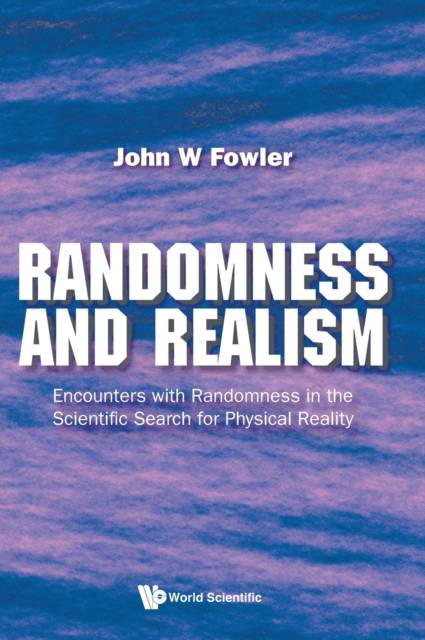
- Retrait gratuit dans votre magasin Club
- 7.000.000 titres dans notre catalogue
- Payer en toute sécurité
- Toujours un magasin près de chez vous
- Retrait gratuit dans votre magasin Club
- 7.000.0000 titres dans notre catalogue
- Payer en toute sécurité
- Toujours un magasin près de chez vous
Randomness and Realism: Encounters with Randomness in the Scientific Search for Physical Reality
John W Fowler
Livre relié | Anglais
241,45 €
+ 482 points
Description
Randomness is an active element relevant to all scientific activities. The book explores the way in which randomness suffuses the human experience, starting with everyday chance events, followed by developments into modern probability theory, statistical mechanics, scientific data analysis, quantum mechanics, and quantum gravity. An accessible introduction to these theories is provided as a basis for going into deeper topics.Fowler unveils the influence of randomness in the two pillars of science, measurement and theory. Some emphasis is placed on the need and methods for optimal characterization of uncertainty. An example of the cost of neglecting this is the St. Petersburg Paradox, a theoretical game of chance with an infinite expected payoff value. The role of randomness in quantum mechanics reveals another particularly interesting finding: that in order for the physical universe to function as it does and permit conscious beings within it to enjoy sanity, irreducible randomness is necessary at the quantum level.The book employs a certain level of mathematics to describe physical reality in a more precise way that avoids the tendency of nonmathematical descriptions to be occasionally misleading. Thus, it is most readily digested by young students who have taken at least a class in introductory calculus, or professional scientists and engineers curious about the book's topics as a result of hearing about them in popular media. Readers not inclined to savor equations should be able to skip certain technical sections without losing the general flow of ideas. Still, it is hoped that even readers who usually avoid equations will give those within these pages a chance, as they may be surprised at how potentially foreboding concepts fall into line when one makes a legitimate attempt to follow a succession of mathematical implications.
Spécifications
Parties prenantes
- Auteur(s) :
- Editeur:
Contenu
- Nombre de pages :
- 536
- Langue:
- Anglais
Caractéristiques
- EAN:
- 9789811243455
- Date de parution :
- 27-07-21
- Format:
- Livre relié
- Format numérique:
- Genaaid
- Dimensions :
- 178 mm x 254 mm
- Poids :
- 1138 g

Les avis
Nous publions uniquement les avis qui respectent les conditions requises. Consultez nos conditions pour les avis.






